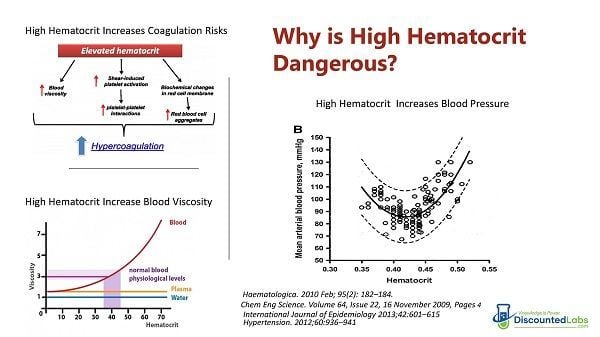JayD
Active Member
Hi Guys
Blood lab turned me away for having Haemoglobin of 198. Apparently the limit is 185(Here in New Zealand)
I am currently on 80mg(split twice a week 40+40)of test cyp deep IM. Have been on this for 4 months and going well. Can't do and form of subq as gives me anxiety insomnia and gummyworm dick.
Should I lower my dose?
Latest labs below
Thanks
Prolactin 489mU/L(65-400)(taking cabergoline quarter of a 0.5mg tablet per week)
Total testosterone 22nmol/L(8.6-29)
Free testosterone 667pmol/L(220-680)
SHBG 17pmol/L(13-49)
Estradiol 143pmol/L(0-190)
Ferritin 46ug/L(30-500)
PVC 0.55 L/L(0.40-0 54)
Haemoglobin 184 g/L(125-170)
RBC 6.2x10'12/L(4.0-5.8)
Blood lab turned me away for having Haemoglobin of 198. Apparently the limit is 185(Here in New Zealand)
I am currently on 80mg(split twice a week 40+40)of test cyp deep IM. Have been on this for 4 months and going well. Can't do and form of subq as gives me anxiety insomnia and gummyworm dick.
Should I lower my dose?
Latest labs below
Thanks
Prolactin 489mU/L(65-400)(taking cabergoline quarter of a 0.5mg tablet per week)
Total testosterone 22nmol/L(8.6-29)
Free testosterone 667pmol/L(220-680)
SHBG 17pmol/L(13-49)
Estradiol 143pmol/L(0-190)
Ferritin 46ug/L(30-500)
PVC 0.55 L/L(0.40-0 54)
Haemoglobin 184 g/L(125-170)
RBC 6.2x10'12/L(4.0-5.8)
Last edited:















